AstraZeneca Vietnam fosters girls’ leadership and female talent in COVID-19
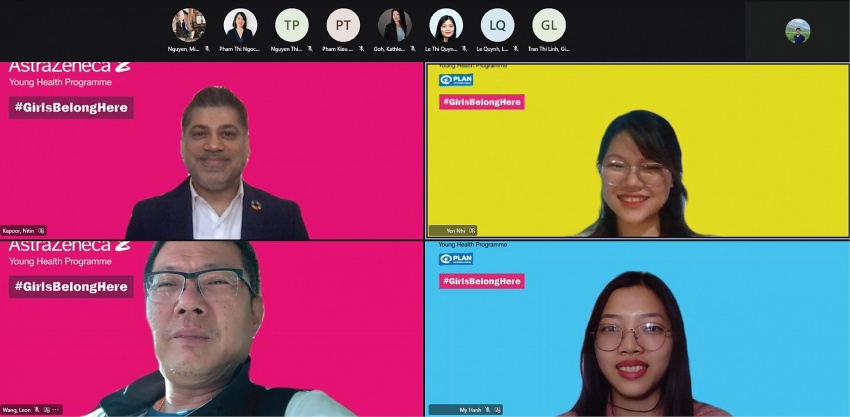 |
| “Girls Takeover” at AstraZeneca Vietnam fosters girls’ leadership and female talent in the context of COVID-19 |
During the event held on October 11, AstraZeneca leaders stepped aside from their roles to give two female students from the National Economics University a unique opportunity to lead a webcast discussion and share their ideas on how AstraZeneca can further promote female leadership and women’s empowerment.
Joining AstraZeneca leaders and employees, Yen Nhi and My Hanh – from Ha Giang and Nam Dinh – discussed their experience and observations of COVID-19 challenges. They highlighted that the pandemic has posed several emotional and economic challenges as they have to manage both professional and family duties during social distancing. For those in remote areas, COVID-19 also put girls at greater risk of exploitation, child labour, and gender-based violence.
My Hanh shared during the discussion: “COVID-19 outbreaks have not only limited our chances to participate in meaningful social activities, but also exposed young girls to more misinformation, cyber bullying, and harassment. I hope to see more programmes to help equip girls with skills to protect themselves online and other virtual educational opportunities.”
My Hanh and Yen Nhi had time to learn about opportunities in science and innovation for women through AstraZeneca’s journey in addressing the pandemic and non-communicable diseases. The two girls then led the panel discussion and shared their ideas on how the company can further its support for women empowerment in Asia, with a focus on Vietnam.
“Programmes like Young Health Programme are really helpful as they equip girls with knowledge and skills to take the lead. I realise that I learnt a lot from both training sessions and other group activities. Besides, connecting girls, especially those in remote areas, with female leaders who can serve as role models can help inspire girls to take actions for themselves,” said Yen Nhi.
Contributions from the youths were highly appreciated by AstraZeneca leaders. “AstraZeneca is proud that almost half of our senior leadership roles are filled by women. Female representation in senior leadership roles is crucial, not just for an organisation's performance and success, but also to nurture an inclusive and diverse environment to generate innovative ideas for sustainable growth,” Leon Wang, EVP, AstraZeneca International Area and President, AstraZeneca China emphasised.
Nitin Kapoor, chairman and general director, Vietnam and Asia Area Frontier Markets reiterated that AstraZeneca will continue to encourage young women empowerment. “It was inspiring for us at AstraZeneca to hear from such young female talents. This meaningful dialogue illuminated on the challenges that continue to disproportionately affect girls and young women, exacerbated by the pandemic. However, with impactful partnerships and a genuine intent to help, organisations like AstraZeneca can and will go above and beyond to provide equal opportunities to girls, and empower them to raise their voice to build a healthier, fairer future.”
“This unique experience as leaders of AstraZeneca is a great opportunity for us to learn the necessary skills to develop our worldview and nurture our enthusiasm for a future with gender equality,” My Hanh and Yen Nhi proudly shared after the discussion.
Since 2016, thousands of girls all over the world and 982 girls in Vietnam have been stepping into the roles of leaders in politics, media, entertainment, and business, among others, to demand equal power and representation for girls and young women through Plan International’s great effort in running the Girls Takeover series.
| AstraZeneca’s Young Health Programme (YHP) is a global disease prevention programme with a unique focus on young people aged 10 to 24, living in vulnerable environments and under-resourced settings around the world. The YHP aims to prevent the most common non-communicable diseases (NCDs) such as cancer, diabetes, heart disease, respiratory disease, and mental illness. Delivered in partnership with Plan International and UNICEF and informed by research from the Johns Hopkins Bloomberg School of Public Health, it has reached more than 30 countries and 12 million youth with information about NCD risk behaviours. YHP aims to support the development of protective environments and empower young people to make informed choices about their health. A holistic and integrated programme, it combines community programmes, research, and advocacy and supports the development of young leaders. YHP is part of AstraZeneca’s sustainability commitment to use our capabilities to make the most meaningful impact where society needs it – health. |
What the stars mean:
★ Poor ★ ★ Promising ★★★ Good ★★★★ Very good ★★★★★ Exceptional
Related Contents
Latest News
More News
- List of newly-elected members of 14th Political Bureau announced (January 23, 2026 | 16:27)
- 14th Party Central Committee unanimously elects To Lam as General Secretary (January 23, 2026 | 16:22)
- List of members of 14th Party Central Committee announced (January 23, 2026 | 09:12)
- Highlights of fourth working day of 14th National Party Congress (January 23, 2026 | 09:06)
- Press provides timely, accurate coverage of 14th National Party Congress (January 22, 2026 | 09:49)
- Press release on second working day of 14th National Party Congress (January 22, 2026 | 09:19)
- Minister sets out key directions to promote intrinsic strength of Vietnamese culture (January 22, 2026 | 09:16)
- 14th National Party Congress: Renewed momentum for OVs to contribute to homeland (January 21, 2026 | 09:49)
- Party Congress building momentum for a new era of national growth (January 20, 2026 | 15:00)
- 14th National Party Congress’s opening: Great aspirations, steady steps (January 20, 2026 | 09:50)

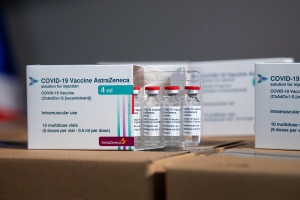
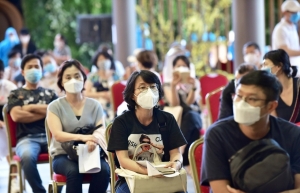
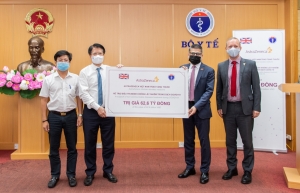
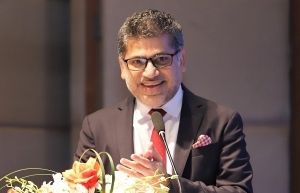
 Tag:
Tag:
























 Mobile Version
Mobile Version